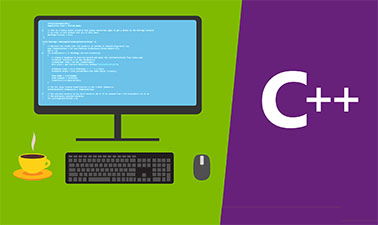About This Course
Now that you’ve mastered the basics, the Intermediate level is where C++ truly shines.
This course is the second in a three-part series designed to teach students some of the most important C++ concepts. This part focuses on how C++ interacts with memory, featuring concepts like pointers/memory addresses, heap memory management, and writing/reading files.
Knowing C++, you can create applications that will run on a wide variety of hardware platforms such as personal computers running Windows, Linux, UNIX, and Mac OS X, as well as small form factor hardware such as IoT devices like the Raspberry PI and Arduino –based boards.
Prerequisites
This course consists of four modules that build on the Introduction to C++ course on edX. As a result, completion of that introductory course is strongly recommended if you have no prior C++ experience. It is also recommended that students have some understanding of basic computer operation, the ability to install applications, and the ability work within a command line on their chosen operating system. Knowledge of and experience with a C++ compiler and editor of your choice is also strongly recommended as this course does not cover aspects of development environments.
What you'll learn
- C++ Pointers
- C++ Reference Types
- Memory Management in C++
- Working with Streams and Files for input/output operations
Course Staff
Gerry O'Brien
Senior Content Development Manager
Microsoft
Gerry O’Brien is a Senior Content Development Manager at Microsoft Learning with a focus on software development and database platforms. He has over 18 years of industry experience in various roles including software development, consulting, and training. Gerry has experience programming with:
- C#
- Visual Basic
- Java
- Objective-C

